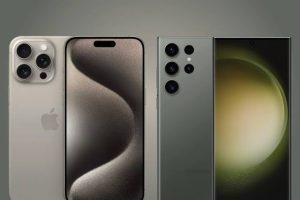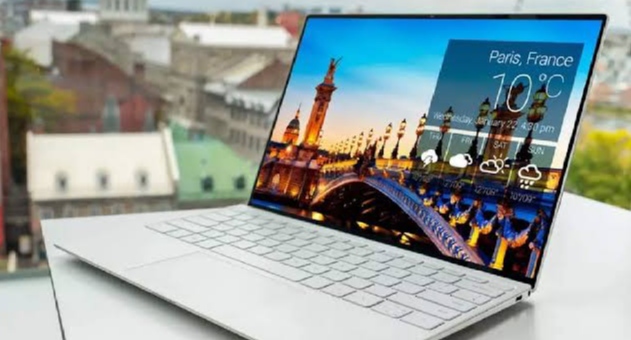Introduction
When it comes to smartphones, two major players dominate the market: iPhone and Samsung. The battle between these tech giants has been ongoing for years, with each brand offering its own unique features and advantages. In this article, we will compare and contrast the iPhone and Samsung phones, helping you make an informed decision about which device suits your needs.

Design and Build Quality:
Both Apple and Samsung excel in design, but with different approaches. Apple’s iPhone boasts a sleek and minimalist design, often crafted with premium materials such as glass and aluminum. On the other hand, Samsung devices offer a wider range of design options, including both glass and metal variants, with some models featuring water and dust resistance.
Operating Systems:
The operating system is a crucial aspect to consider. Apple’s iPhones run on iOS, a proprietary system known for its smooth performance and optimized hardware-software integration. Samsung phones, on the other hand, utilize the popular Android operating system, which offers more customization options and a wider range of apps.
Performance and Features:
When it comes to performance, both iPhone and Samsung phones deliver exceptional results. Apple designs its own processors, which are considered some of the fastest and most efficient in the industry. Samsung devices also feature powerful processors, offering a wide range of options across different price points.
Camera Capabilities:
Photography enthusiasts will appreciate the advanced camera systems offered by both brands. Apple focuses on image processing and software optimization, resulting in stunning photos and videos. Samsung, on the other hand, offers a variety of camera features, including high megapixel counts, multiple lenses, and advanced imaging capabilities.
Ecosystem and Integration:
Apple excels in offering a tightly integrated ecosystem, allowing seamless connectivity between iPhones, iPads, Macs, and Apple Watches. Samsung devices integrate well with other Android devices and offer compatibility with various third-party services.
Software Updates and Support:
Apple is known for providing timely software updates, ensuring users have access to the latest features and security patches. Samsung devices also receive updates, but the timing and frequency can vary depending on the model and carrier.
Price and Value for Money:
It’s no secret that Apple devices are generally considered more expensive compared to Samsung phones. However, Samsung offers a wider range of devices at various price points, making them more accessible to a broader audience.
In conclusion, choosing between an iPhone and a Samsung phone ultimately comes down to personal preference and priorities. Consider factors such as design, software experience, camera capabilities, ecosystem integration, and budget when making your decision. It’s important to read reviews, compare specifications, and try out the devices in person to determine which one best suits your needs and preferences. Both iPhone and Samsung phones have their own strengths and weaknesses, so choose wisely to ensure you get the best smartphone experience for your money.
Featured Keywords:
iPhone, Samsung, smartphone, comparison, features, performance, design, camera, operating system, ecosystem, user experience, price, value for money, durability, reliability, innovation, technology, iOS, Android, flagship, budget-friendly, premium, market leader, consumer choice.

